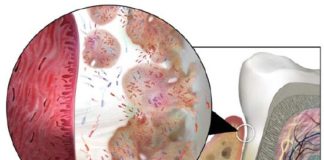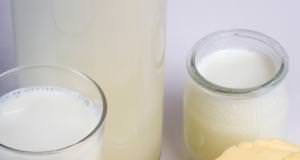Study Finds Fat Hormone’s Long-Sought Link To Heart Protection
One of the many advantages of maintaining a normal body weight is having healthy fat, which in turn supports a healthy heart. Fat tissue is increasingly seen as more than just a storage depot -- it's also an active secretory organ that normally produces high levels of a cardioprotective hormone called adiponectin.
Poor Sleep Quality Increases Inflammation, Community Study Finds
People who sleep poorly or do not get enough sleep have higher levels of inflammation, a risk factor for heart disease and stroke, researchers have found. Data from a recent study are scheduled presented Nov. 14 at the American Heart Association Scientific Sessions in Chicago by Alanna Morris, MD, a cardiology fellow at Emory University School of Medicine.
Gum Health Linked to Heart Disease, Diabetes, Rheumatoid Arthritis and Prostate...
Periodontal disease is a chronic inflammatory disorder that causes gum tissues to pull away from the teeth, allowing bacteria to accumulate and trigger an inflammatory reaction that leads to the loss of bone tissues and teeth.
Bone Marrow Stromal Stem Cells May Aid In Stroke Recovery
A research study from the Farber Institute for Neurosciences and the Department of Neuroscience at Thomas Jefferson University determines bone marrow stromal stem cells may aid in stroke recovery. The results can be found in Cell Transplantation -- The Regenerative Medicine Journal.
Age-Related Hearing Loss And Folate In The Elderly
Age-related hearing loss (ARHL), one of the four most prevalent chronic conditions in the elderly, is associated with low serum levels of folic acid, according to new research published in the December 2010 issue of Otolaryngology -- Head and Neck Surgery.
Whey Supplements Lower Blood Pressure: Low-Cost Protein Gets Big Results In...
Beverages supplemented by whey-based protein can significantly reduce elevated blood pressure, reducing the risk of stroke and heart disease, a Washington State University study has found. Research led by nutritional biochemist Susan Fluegel and published in International Dairy Journal found that daily doses of commonly available whey brought a more than six-point reduction in the average blood pressure of men and women with elevated systolic and diastolic blood pressures.
Compound Derived From Curry Spice Is Neuroprotective Against Stroke And Traumatic...
A synthetic derivative of the curry spice turmeric, made by scientists at the Salk Institute for Biological Studies, dramatically improves the behavioral and molecular deficits seen in animal models of ischemic stroke and traumatic brain injury (TBI). Two new studies suggest that the novel compound may have clinical promise for these conditions, which currently lack good therapies.
FDA Cracks Down On Tainted Dietary Supplements
Manufacturers who put tainted or undeclared ingredients into dietary supplements were warned Wednesday by the Food and Drug Administration that they can no longer market them as such. The FDA has received reports on well over 100 products over the last few years, a number of them detailed serious injuries, even deaths. In fact, since 2007 the agency has sent out consumer alerts about 300 adulterated products.
Component In Common Dairy Foods May Cut Diabetes Risk, Study Suggests
Scientists at the Harvard School of Public Health (HSPH) and collaborators from other institutions have identified a natural substance in dairy fat that may substantially reduce the risk of type 2 diabetes. The compound, trans-palmitoleic acid, is a fatty acid found in milk, cheese, yogurt, and butter. It is not produced by the body and so only comes from the diet.
Bacteria Eyed For Possible Role In Atherosclerosis
Dr. Emil Kozarov and a team of researchers at the Columbia University College of Dental Medicine have identified specific bacteria that may have a key role in vascular pathogenesis, specifically atherosclerosis, or what is commonly referred to as "hardening of the arteries" -- the number one cause of death in the United States.
Liver Disease A Possible Predictor Of Stroke
People suffering from fatty liver disease may be three times more likely to suffer a stroke than individuals without fatty liver, according to a study by researchers at St. Michael's Hospital and the London Health Sciences Centre. The study is the first to find a link between nonalcoholic fatty liver disease -- a disease characterized by the accumulation of fat in the liver in non drinkers -- and stroke.
Common Painkillers Linked To Increased Risk Of Heart Problems
The drugs include traditional non-steroidal anti-inflammatory drugs (NSAIDS) as well as new generation anti-inflammatory drugs, known as COX-2 inhibitors. The researchers say that doctors and patients need to be aware that prescription of any anti-inflammatory drug needs to take cardiovascular risk into account.














